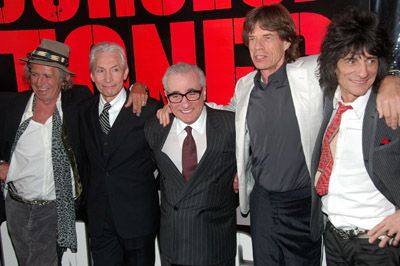So you and your friends can finally call yourselves a real band. You're known at bars, clubs and coffee houses outside of the neighborhood you grew up in. You have a great local following and a presence on the Internet. A recent self-google has actually turned up results that are about you.
The new music you are writing is resonating with the audience. Things are all heading in the right direction, and you're ready to take it to the next level -- you want a recording contract. Visions of huge record labels dance in your head... A&M Records, Capitol Records, Elektra... But, how much do you really know about that part of the business? What does a recording contract look like? What happens after you sign one? How much money will you actually make?
Advertisement
In this article, you will have a chance to explore some of the basic features of any big-label recording deal. What you will learn may come as a bit of a surprise. The typical recording contract may not be the envisioned whipped cream on your life sundae. In fact, some of the biggest names in the business have been loudly complaining in recent years. Let's see why that is.



